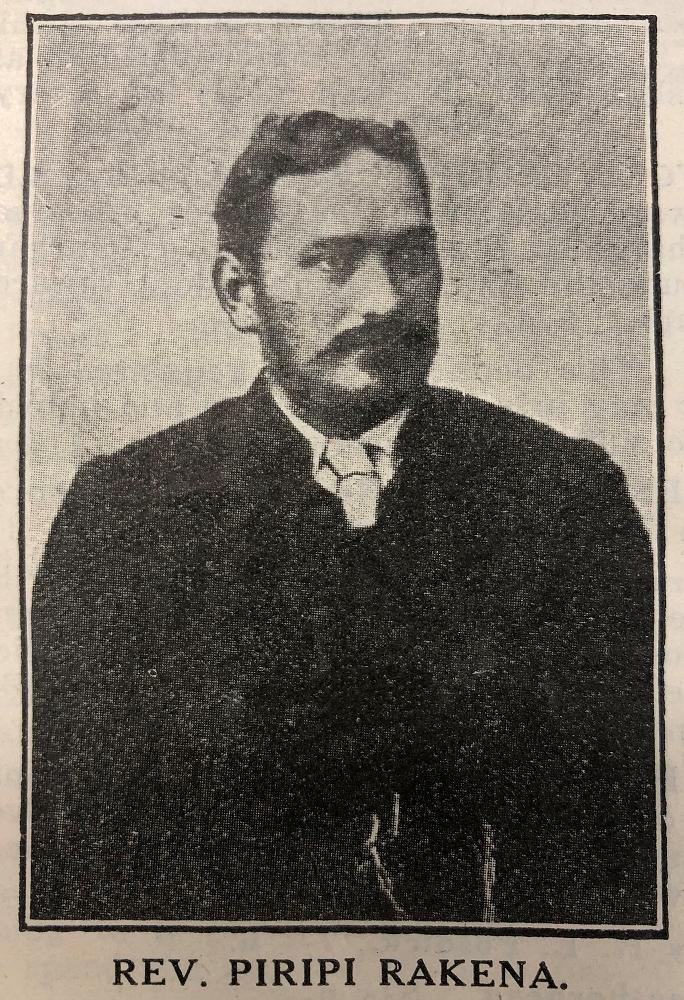
“God Has Called Me …”
The Rakena Whānau
A while back, just after his death, I offered a brief tribute to Rua Rakena. I didn’t mention it at the time, but he once told me the story of his call to ministry. Because of its wartime use by the military, Wesley College was closed to students for a year and more. Rua received his secondary education at St Stephen’s College, an Anglican institution. For that reason, as he said, following his father and grandfather into the ministry was not automatic. However, 75 years ago he was summoned (his word) to a meeting with Eru Te Tuhi, the senior Māori minister, George Laurenson (head of Home and Māori Missions) and his father. In that meeting, he learned it was ‘expected’ that he should be a Methodist minister, and it happened.
The tradition started with Piripi Rakena (1858 – 1934). I recently came across an early report on his work as ‘Native Minister’ in the Hokianga region, in 1892. It makes fascinating, and salutary, reading:
‘Great is my joy in my work of preaching the Gospel of our Lord Jesus, and in my prayers that the Māori people may be saved by the power of God. I feel very grateful to God for His goodness to me during my visit to the South Island last year, also to the Pakeha for their kindness, and also to the Māori who received me so well and were so desirous that I should stay with them as their minister. The work of God amongst my people here is in a healthy state.
Drunkenness is a thing of the past, and the Māori are turning their attention to sheep farming, by which perhaps, they may secure a livelihood. The places where the work progresses best are Mangamuka, Taupo, and Utakura. I am chiefly engaged in preaching on the Sabbath, but when at home I conduct a Sunday school and singing class. On weekdays I am generally engaged in fencing, clearing, ploughing and planting the land, hunting cattle and horses, and in other ways seeking food for myself and my family. My people are very kind in giving me potatoes and kumara. At present, I am engaged in building myself a weather-boarded house and wish the Home Mission Fund would make me a grant towards purchasing the timber to finish it. Visiting the sick also occupies a portion of my time.
I am troubled by the smallness of my stipend. The Pakeha have ceased buying timber, and I have nothing left to supplement my stipend. If my stipend were £80 per year I should be satisfied, but I suppose I must be content as the Māori collect so little towards the Home Mission Fund, and God has called me to work in His vineyard. My people are always glad to receive the visits of our minister, Rev. T.A. Joughin, and it is our sincere desire that he may reside in the midst of us. We should also feel glad if at any time one of the Fathers of the Church visited us. This finishes what I have to say.’
(Signed) Piripi Rakena
These reports to the Home Mission Fund Board were not included in its report to Conference. What Piripi described did not become common knowledge around the Connexion, and the Board was not, in a sense, under an obligation to report how it resolved issues raised by its Native Ministers and Home Missionaries. But then, the hundreds of Methodist Societies around the country did not have to send in an annual report of their work. The work of the Methodist Church went on because, as Piripi said, it was done in response to the call of God.
The Native Minister, however, was not in the position of his pakeha counterpart – who had a parsonage provided. Piripi’s report describes what he had to do to ensure that his family were provided for - ‘seeking food for myself and my family’ as he said. There was pressure on him to do that while performing the duties of a preacher of the Gospel.
A generation ago the principle of ‘sacrificial service’ was still asserted within our Church concerning the call of God. Since that time the terms of appointment of a minister have been under constant revision, and the norms have been set by reference to the secular world of employment and its standards and legal requirements. Strikes for better pay and conditions are almost a part of our everyday life. Let’s not forget those of an earlier generation who thought and acted differently. They deserve our respect.
